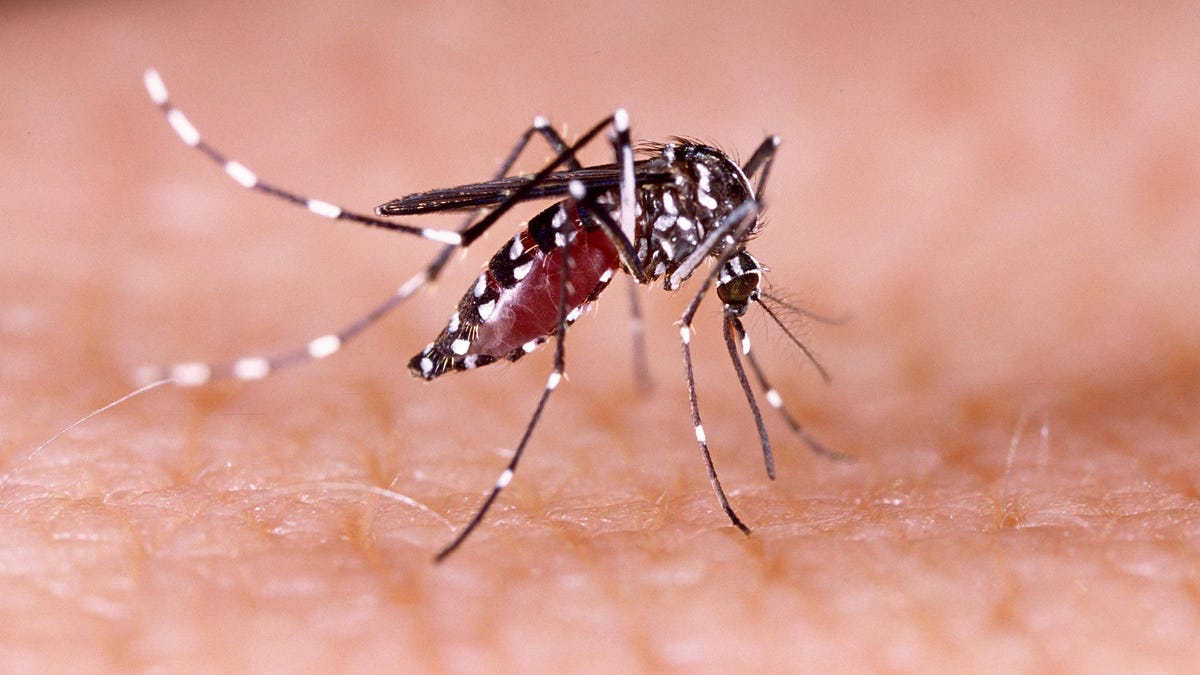Florida has been playing host to an emerging version of the dengue virus, new research shows. The study found that the state has experienced an “unprecedented” number of cases caused by dengue virus serotype 3 over the past two years, including locally acquired cases. Outbreaks have remained relatively small and contained, at least for now.
Denis Villeneuve Had a Blast Building the Dune Lego
Dengue is a mosquito-borne disease. Most initial infections cause no symptoms, but about a quarter will experience flu-like illness, while one in 20 of these cases can develop severe, life-threatening complications like internal bleeding and shock. There are four major serotypes of the dengue virus, and surviving an infection only provides immunity to that specific type. What’s worse, a second infection from another type of the virus actually raises the risk of developing severe dengue.
The Aedes mosquitoes that spread dengue typically live in tropical areas of the world. But over the past few decades, their range has expanded, as has the risk of catching dengue. According to the World Health Organization, the number of reported dengue cases has increased tenfold globally since 2000, with more than 5 million cases documented in 2019, and the virus is now endemic in more than 100 countries. The threat of dengue is only growing larger, thanks in no small part due to climate change, and new parts of Europe and the Americas have seen outbreaks in recent years, including inside the U.S.
The virus isn’t endemic to the continental U.S., and most cases today are found in people who recently traveled to countries where the virus is regularly encountered. But starting in early 2022, Florida health officials began to notice an increase in reported dengue cases, both travel-related and locally acquired. This trend continued into 2023, with more than 700 cases documented that year. In a report published recently in the Morbidity and Mortality Weekly Report, local officials teamed up with the CDC to characterize and get a better sense of these outbreaks.
Between May 2022 and April 2023, the authors found, Florida experienced at least 1,037 dengue cases, with nearly two-thirds of these cases being caused by dengue virus serotype 3, or DENV-3. Dengue is endemic to the outlying U.S. territories of Puerto Rico and the Virgin Islands, but the vast majority of cases seen in these areas since 2010 have been caused by serotypes 1 and 4. The report authors say these latest outbreaks feature an “unprecedented number of travel-associated and locally acquired DENV-3 cases in Florida.”
The bulk of dengue cases in Florida were still related to travel, with most originating from Cuba. Not-so-coincidentally, Cuba experienced a large outbreak of DENV-3 beginning in July 2022. Other parts of the Americas have seen DENV-3 cases recently as well, such as Brazil and Arizona (including the state’s first known locally acquired cases).
The silver lining seems to be that dengue did not manage to make large inroads into Florida this time around. The team’s genetic analysis found that the DENV-3 cases involved very closely related strains, including those transmitted by local mosquitoes, likely meaning the virus did not spread widely beyond the initial outbreaks. That said, the researchers do say that improved vigilance would help keep dengue from becoming an endemic problem.
“Close monitoring of DENV activity internationally, as well as increasing healthcare provider awareness about DENV identification and testing, can strengthen preparedness and response to future introductions in non–DENV-endemic areas,” they wrote.
